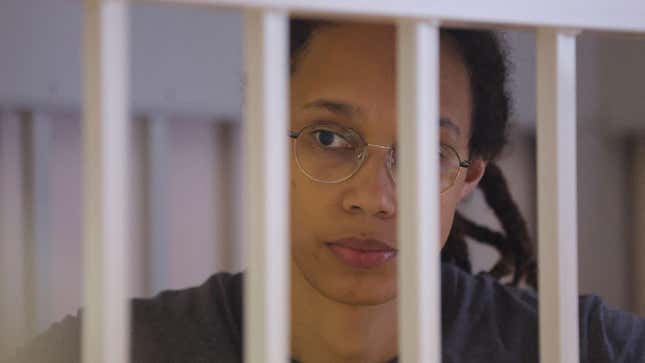Brittney Griner Is Only Allowed Outside Once a Day, and Her Mental Health Is Declining
The WNBA star’s lawyer said Griner is becoming becoming hopeless about the prospect of ever coming home.
JusticePolitics

In a string of increasingly heartbreaking news about the wellbeing of WNBA star Brittney Griner, who is currently detained in Russia, the basketball player’s lawyer is now telling press that Griner is not in “good condition” and is growing increasingly anxious that U.S. officials may never be able to bring her home.
Alexander Boikov, Griner’s lawyer, told the New York Times this week that Griner is only allowed outside once a day for a one-hour walk in a small courtyard at a penal colony outside Moscow. The rest of her time is spent in a small cell with two cellmates, where the 6-foot-9 athlete sits and sleeps—all of which Boikov says is contributing to her declining mental health.
“She is not yet absolutely convinced that America will be able to take her home,” Boikov said, after he spoke to Griner on Tuesday. “She is very worried about what the price of that will be, and she is afraid that she will have to serve the whole sentence here in Russia.”
-

-

-

-

-

-

-

-

-

-

-

-

-

-

-

-

-

-

-

-

-

-

-

-

-

-

-

-

-

-

-

-

-

-

-

-

-

-

-

-








































